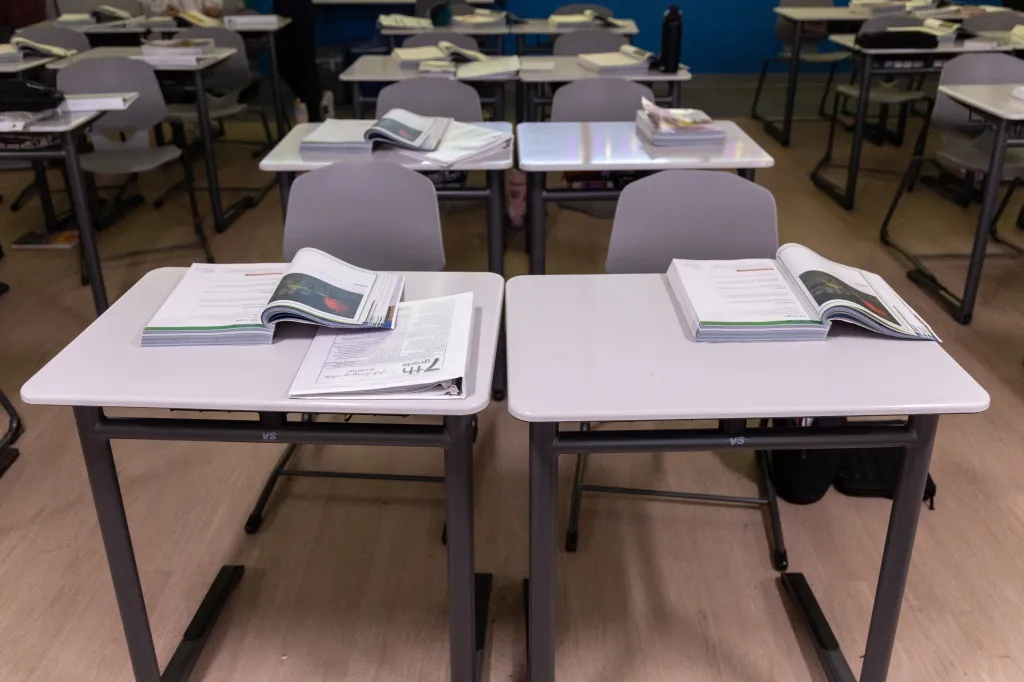Copyright theconversation

A government-appointed review panel has just released its long-awaited report on England’s national curriculum. Its stated intention is to improve curriculum quality for all children, but particularly those “for whom the system is currently not working well,” such as children with special educational needs and those from disadvantaged backgrounds. A new national curriculum will be published in 2027 and will come into force in September 2028. The review panel wanted this phased in, but the government says that it will happen in one go. The review’s recommendations for the curriculum include an oracy framework to join the reading and writing frameworks, to encourage children and young people to become confident, effective speakers. It proposes a shake-up of literacy testing in year six. It suggests that primary tests could be revised to make them more accessible to children with special educational needs and disabilities. Schools are encouraged to make use of existing optional tests at the end of key stage one, for children aged seven. The report also recommends greater representation of ethnic and other diversity in the subject matter of GCSEs, religious education to be better integrated in a national curriculum, and a substantial reduction in the length of GCSE examinations. In its response to the report, the government has committed to reducing GCSE exam time by two and a half to three hours on average – less than the “at least 10%” the review suggested. Confusingly, the government has made a number of additional suggested changes to education and entitlement at around the same time as the publication of the review’s final report. The review suggests new diagnostic maths and reading tests for year eight. But these are presumably not in addition to the new year eight reading tests already proposed by the government. Each proposal may have merit, and making primary tests more accessible for children with special educational needs might work. But overall there is little here that will directly help overcome disadvantage. It is not clear that encouraging more schools to use key stage one tests, rather than abolishing them or making them mandatory, will help. Schools with more resources will be better able to make use of the tests. Nor is it clear that poor children are especially disadvantaged by religious education not being part of the national curriculum. Triple science The report proposes that all students should be entitled to study the three separate traditional sciences at GCSE – physics, chemistry and biology. This proposal has been accepted by the government. The argument here is that for those students wanting to continue in a scientific career, or enter university to study a science, access to the individual specialist subjects is crucial. Schools in some disadvantaged areas have offered only GCSE qualifications in dual or combined science. This is a double qualification covering all three traditional sciences, but in two thirds of the time. In some respects, therefore, this reform should be welcomed. It offers parity for pupils of all backgrounds across schools. However, in other ways it is already out of date. Students pursuing science careers beyond school aren’t necessarily going to take a degree in physics, biology or chemistry. They may well study degrees in combined sciences, more specialist topics such as cybernetics, or subjects such as nursing science, forensic science or psychology. The biggest barrier to success in the “hard” sciences may actually be the lack of specialist teachers. Currently it is estimated that over half of all physics lessons are not taught by specialists in those subjects. And, as with dual science, this is more likely to occur in disadvantaged, remote or otherwise hard-to-staff schools. Even if all schools were to offer three sciences, perhaps by relocating new and existing specialist teachers more evenly between schools, there would still not be enough specialist teachers to teach everyone. What would happen instead is that only some students in each school would be able to study three separate sciences (with appropriate teachers). This could lead to social or other stratification within schools. The policy could only work as intended if recruitment of specialist teachers were rapidly improved. In truth, changes that fall outside the national curriculum – such as recruiting better qualified teachers in remote areas, or increasing funding for areas with high proportions of long-term disadvantage – would be better bets to tackle disadvantage. If this new proposed curriculum is to have any chance, it must be met with a seismic shift in teacher funding and recruitment.



